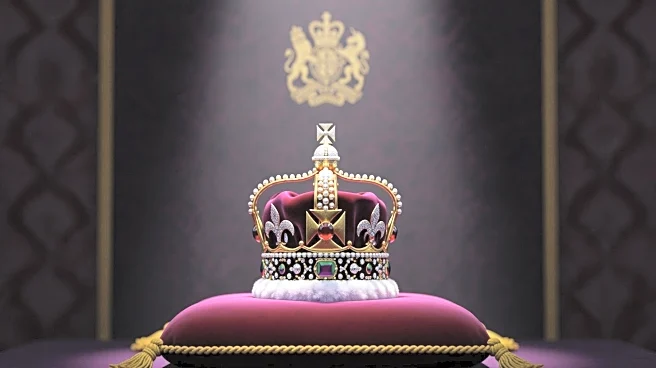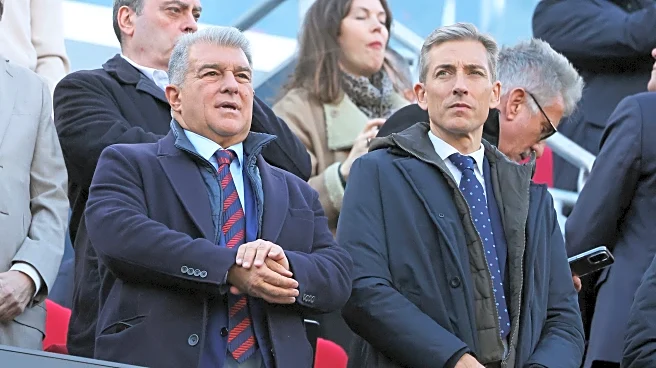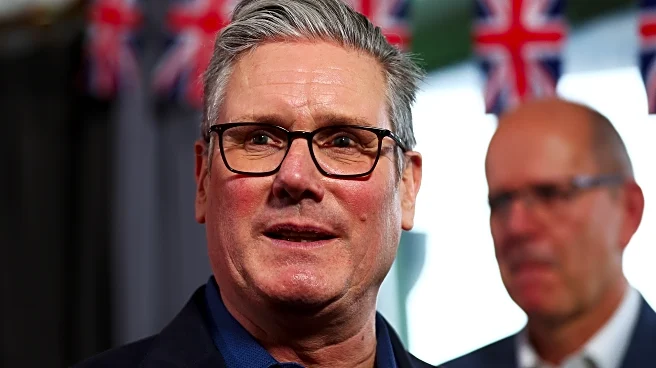What's Happening?
Prince Andrew, the younger brother of King Charles III, has decided to stop using his royal titles, including the Duke of York, due to ongoing scrutiny over his relationship with Jeffrey Epstein. This
decision was made in consultation with King Charles and other royal family members, as Andrew believes the accusations against him distract from the royal family's work. Despite retaining his title as 'prince,' Andrew will no longer use the Duke of York title, as removing it would require parliamentary action. His ex-wife, Sarah Ferguson, will no longer be known as the Duchess of York.
Why It's Important?
The decision by Prince Andrew to relinquish his royal titles is a significant development for the British monarchy, as it seeks to mitigate the impact of the Epstein scandal on its reputation. This move may help restore public trust in the royal family by demonstrating accountability and a willingness to address past controversies. The situation highlights the broader implications of Epstein's legacy on global figures and institutions, emphasizing the importance of transparency and ethical conduct.
What's Next?
Prince Andrew will continue to reside at the Royal Lodge in Windsor and retain his title as 'prince.' The royal family may face further scrutiny as Virginia Giuffre's memoir is set to be published, potentially reigniting public interest in the allegations against Andrew. The monarchy will likely continue to navigate the delicate balance between maintaining its image and addressing past controversies.
Beyond the Headlines
The relinquishment of royal titles by Prince Andrew raises questions about the ethical responsibilities of public figures and institutions in addressing past misconduct. It underscores the cultural shift towards greater accountability and the impact of public pressure on powerful entities. The royal family's handling of this situation may influence broader discussions on privilege, power, and justice, particularly in cases involving sexual abuse and exploitation.











